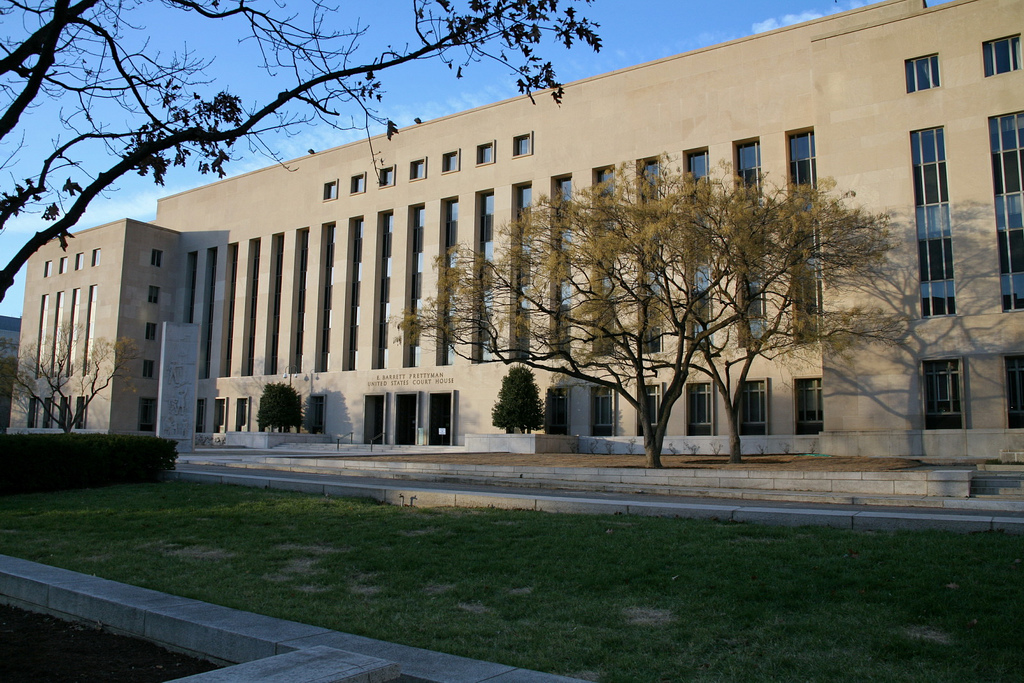Darrel Vandeveld On Reformed Military Commisions
Published by The Lawfare Institute
in Cooperation With

Time to Get Behind Reformed Military Commissions
Realpolitik is a term associated with the worst impulses of powerful princes. The word connotes an ever-tempting evil: a street bully’s inclination to do what he has the strength to do. Realpolitik, however, is precisely the temptation we must now—asymmetrically—resist in our treatment of those we have detained in the struggle against radical Islamism. Despite having squandered much of our claim to righteousness in the wake of the brutal 9/11 attacks by seeking to create a land of the lawless at Guantanamo, we can yet vindicate our values by embracing reformed military commissions.I have a highly-unusual perspective on this issue—having both worked in the commissions system and publicly criticized it. I served as a prosecutor at the Military Commissions from 2007 – 2008, when I asked to be reassigned over what I believed, and continue to believe, were deficiencies in the Military Commissions Act of 2006 and what I viewed as a due process-defeating lack of organization of evidence against the detainees I had proferred charges against. (At one point, I had lead responsibility for one-third of all pending cases before the Commissions.) My departure resulted in more public attention than I had ever wanted, and attention of a sort I never wanted. I became perceived as one with the background and authority to lend credence to the objections repeated by the various human rights organizations, who in fact had opposed the Commissions and the tribunals that preceded them with a particular vehemence.
Now, almost four years later, I have arrived at a different conclusion based largely on the passage of time--time which has seen few new prosecutions and no terminus in sight to a decade-long legal feud, in which the pawns are the detainees. I have come reluctantly to accept the 2009 Military Commissions Act, whose passage I once testified before Congress to oppose. My change of heart is also a function of a new-found faith in the competence of those who will prosecute, defend, and judge Guantanamo detainees brought to trial in these reformed commissions. (Full disclosure: the new Chief Prosecutor is an officer I have served with and long admired for his professionalism and commitment to fairness.) Following much reflection and study of recent promising implementation of the 2009 Act, as described on this blog here and here and here and here, I now believe that this still-imperfect system can nevertheless achieve justice.
We will not be able to try Guantanamo detainees on United States soil before Article III federal courts. Resistance is too intractable over the near- to medium-term, and justice delayed really is justice denied. We certainly owe trials to the victims of terrorist attacks. And yes, while the authority to detain fighters for the duration of an armed conflict is well-established, we owe trials to all who are triable in this long and unconventional war, because at some point, detention becomes punitive regardless of its intent. But we also owe it to ourselves as a nation. Senator John McCain, who knows about such things, speaks with authority when he says that “it is not about them; it is about us.”
I once thought the 2009 Act to be the bruised product of too many hands. Putting aside any lingering regrets, I today accept that the alleged 9/11 conspirators, the alleged mastermind of attacks on the U.S.S. Cole and the MV Limburg, and several dozen others should now be tried within a framework I too-hastily rejected as irremediable three years ago. We should employ, judiciously and expeditiously, the only legal array we have to end a decade of panicky missteps and failure. Through the prudent and transparent use of reformed military commissions, we can provide fair trials in spite of remaining areas of concern in the law, such as those described here and here, while moving nearer to closing Guantanamo. If we succeed, we can re-establish our moral example—the real source of our nation’s power and authority in a world filled with would-be dangerous princes and modern, non-state bullies.


-final.png?sfvrsn=b70826ae_3)


